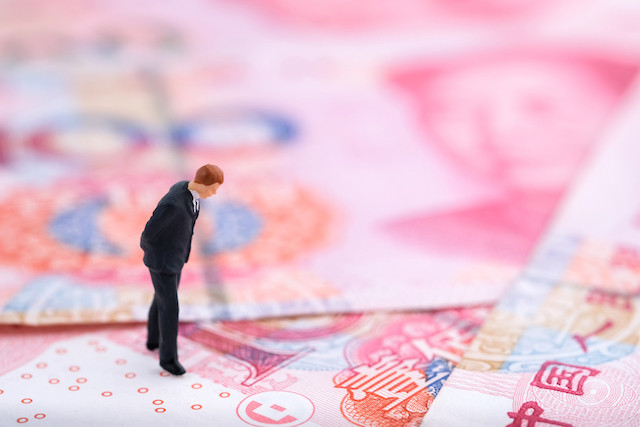Juvyns, who is responsible for providing economic analysis to clients in the Benelux region, among others, is in regular contact with partners in China and says that the situation there is “almost business as normal”.
Europe is experiencing a second wave of the virus, with Luxembourg breaking records in number of new infections over the last week and neighbouring France having this week reported the highest daily death toll since April. On Wednesday, France announced a national lockdown, albeit a less strict version than the first one, while Germany the same night imposed a partial lockdown. Juvyns estimates this European second wave will indeed be “more disruptive” than the first.
From the Chinese perspective, however, although January and February proved challenging, “it’s fair to say the country has managed to find tough measures to contain the first wave and avoid a second wave of the virus.”
Earlier this October, the International Monetary Fund adjusted its 2020 global forecast, predicting a 4.4% global GDP contraction (compare this to 0.1% in 2009, following the 2008 economic crisis), which Juvyns says will be “one of the deepest”. And, although recovery has picked up worldwide, it’s still below potential, Juvyns adds, with “China leading the global economic recovery”. By Q2 2020, China’s economy had rebounded beyond expectation, at 3.2% growth year-on-year. By the end of this year, it is expected to outpace the GDP level end-2019, “and it’s probably one of the few countries in the world which is going to see that, and it’s managed to do that with little monetary and fiscal support,” Juvyns said.
The recovery is in part due to the fact that China benefitted from other countries’ manoeuvers. “The US and Europe essentially supported consumption and income in their economies, like this China has managed to export itself out of recession, and export figures in China rebounded quite strongly.”
While in Luxembourg the services sector has suffered more than manufacturing, services in China “recovered quite nicely”.
Longer term outlook
The opening of capital markets in and investments flow to China, as well as the country’s work on fulfilling benchmarks in stock and bond indices, should continue to support its economy moving forward. Its equity and bond markets are the second largest in the world.
Additionally, IMF’s addition of the renminbi to its Special Drawing Right (SDR) basket was also “a gamechanger”. Juvyns also anticipates the renminbi will witness growth compared to the US dollar over the next 10-15 years.
He added, “The long-term perspectives are really convincing for European investors, and we see more interest from them to get exposed to China.”
